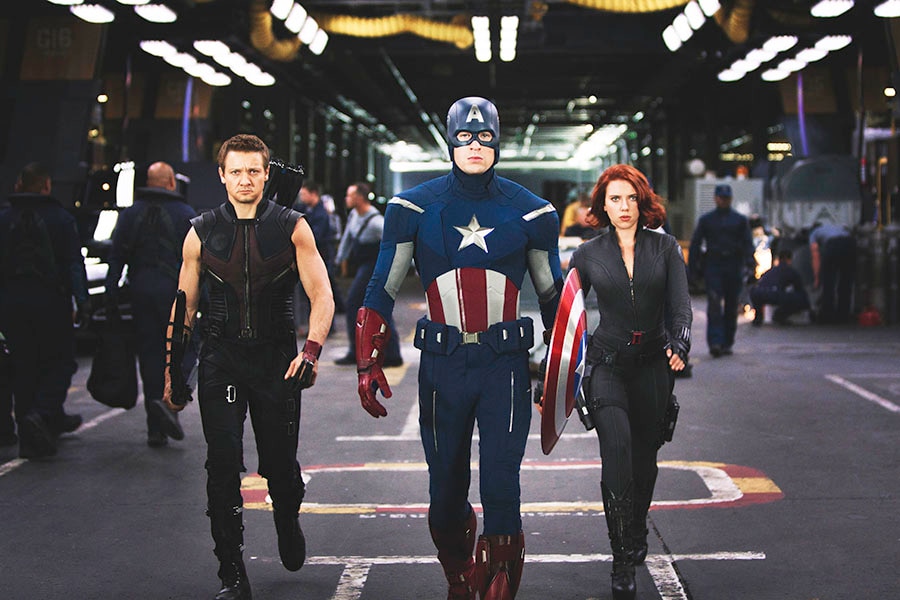
What is the Smurfette syndrome that characterises some films and TV shows?
A symptom of sexism, here's a look at what is behind this concept of underrepresentation that is still far too common on our screens
 Marvel's "Avengers" saga suffers from Smurfette syndrome.
Image: Marvel. All Rights Reserved.©, Avengers
Marvel's "Avengers" saga suffers from Smurfette syndrome.
Image: Marvel. All Rights Reserved.©, Avengers
Whether it's "The Big Bang Theory," "Avengers" or "Star Wars," many TV shows have this thing in common: they all suffer from the Smurfette syndrome. A symptom of sexism, we take a look at what is behind this concept of underrepresentation that is still far too common on our screens.
You're probably familiar with "The Smurfs." The small blue characters were first seen in the comic strip created by Peyo in 1958, which would later spawn animated TV shows and films. Fans likely find it easy to name the various male characters whether it's Hefty Smurf, Handy Smurf, Brainy Smurf, Grouchy Smurf and Lazy Smurf not to mention Papa Smurf, but there is essentially only one female character: the famous Smurfette. Unlike the male characters, this character is only differentiated by her gender, without other added value. And of course Smurfette exists only in her relation to the male characters. She represents a kind of traditional feminine ideal: beautiful and kind, a figure that all men are in love with. It is this principle that Katha Pollitt, an American essayist and feminist, theorized with the Smurfette syndrome, in the newspaper The New York Times in 1991.
Politt evoked this theory to denounce the fact that many casts include only one female role among a multitude of male roles, whether in films or on television. These fictional works reduce the female character to sexist stereotypes, lacking depth. An example can be seen with the character of Penny in the series "The Big Bang Theory." Played on screen by Kaley Cuoco, Penny is nothing more than the next-door neighbor of the two main male characters. Unlike those characters, Leonard Hofstadter and Sheldon Cooper, her last name has never been revealed. The audience first meets her after Leonard's character falls in love with her. Regularly portrayed as taking advantage of her male neighbors' money, hospitality and food, Penny's character is a hodgepodge of various gender stereotypes. Compared to her scientific neighbors with superior intelligence, Penny is seen as far more ignorant and frivolous.
This difference in treatment can also be seen in the films of the "Avengers" saga through the character of Black Widow, played by Scarlett Johansson. "The message is clear. Boys are the norm, girls are the variation; boys are central, girls are peripheral; boys are individuals, girls types. Boys define the group, its story and its code of values. Girls exist only in relation to boys," explains Katha Pollitt.
Also read: Fashion's gender stereotypes start at a very young age







